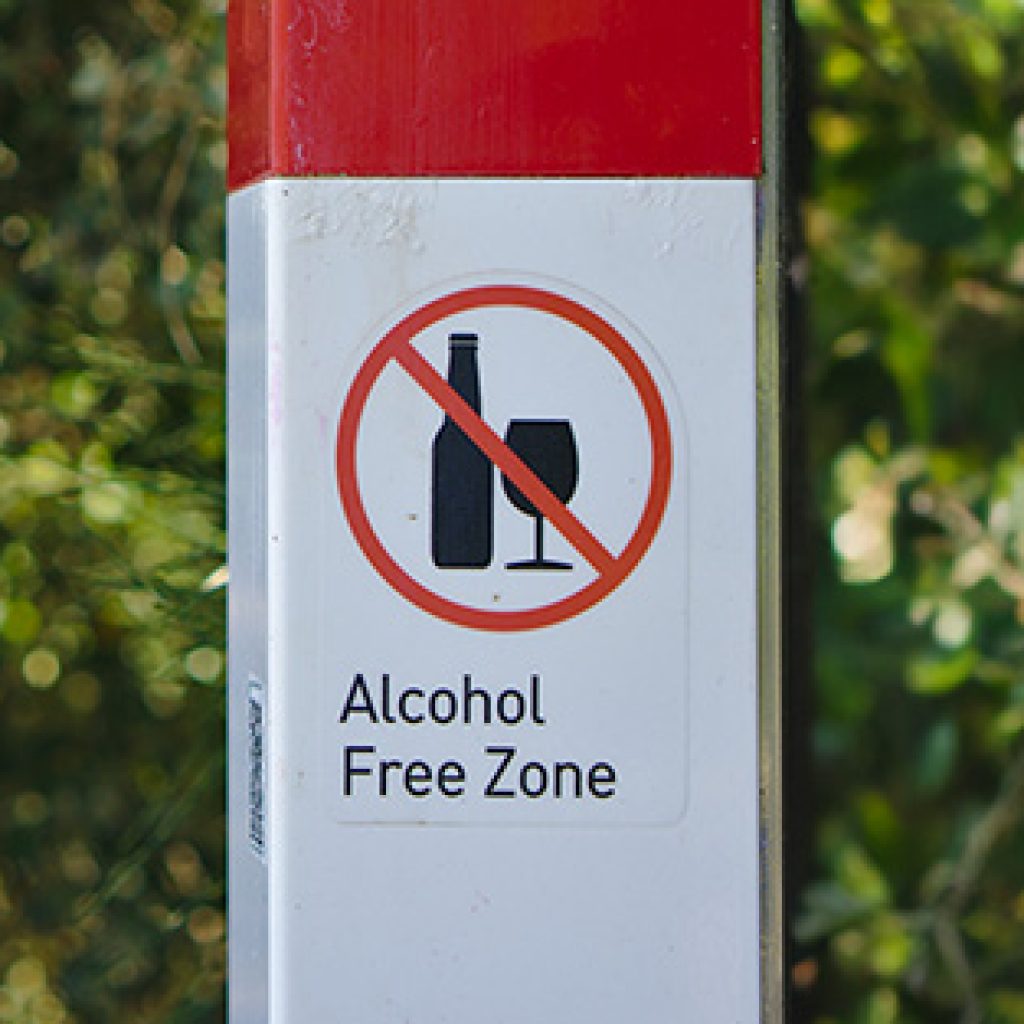What Behavioral Health Providers Need To Know About Veterans And Suicide
Suicide prevention continues to be a public health issue in the United States. From 2000-2018 suicide increased by 30%. In 2019 and 2020, there was a slight decline in deaths by suicide, but provisional data from CDC’s National Center for Health Statistics indicates that suicide rates increased by four percent in 2021. Suicide is among the 9 leading causes of death in the U.S., and the second cause of death for those 10-14 and 25-34 year olds.
5 Fast Facts About Suicide in America

Nearly 46,000 people died by suicide in 2020
![]()
3.2 million made a plan for suicide

There is 1 death every 11 minutes
![]()
1.2 million attempted suicide

12.2 million report seriously thinking about suicide
National Veteran Suicide Prevention Annual Report 2022: Key Findings
The most recent VA National Suicide Data Report is based on data from all states and the District of Columbia based on National Death Index mortality data through 2021:
- In 2020, there were 6,146 Veteran suicide deaths, which was 343 fewer than in 2019. The unadjusted rate of suicide in 2020 among U.S. Veterans was 31.7 per 100,000.
- Over the period from 2001 through 2020, age- and sex-adjusted suicide rates for Veterans peaked in 2018 and then fell in 2019 and 2020. From 2018 to 2020, age- and sex-adjusted suicide rates for Veterans fell by 9.7%.
- Among non-Veteran U.S. adults, age- and sex-adjusted suicide rates also peaked in 2018 and fell in 2019 and 2020. From 2018 to 2020, age- and sex-adjusted suicide rates for non-Veteran adults fell by 5.5%.
- In each year from 2001 through 2020, age- and sex-adjusted suicide rates of Veterans exceeded those of non- Veteran U.S. adults. The differential in adjusted rates was smallest in 2002, when the Veteran rate was 12.1% higher than for non-Veterans, and largest in 2017, when the Veteran rate was 66.2% higher. In 2020, the rate for Veterans was 57.3% higher than that of non-Veteran adults.
- From 2019 to 2020, the age- and sex-adjusted suicide rate for Veterans fell by 4.8%, while for non-Veteran U.S. adults, the adjusted rate fell by 3.6%.
- From 2019 to 2020, among Veteran men, the age-adjusted suicide rate fell by 0.7%, and among Veteran women, the age-adjusted suicide rate fell by 14.1%. By comparison, among non-Veteran U.S. men, the age-adjusted rate fell by 2.1%, and among non-Veteran women, the age-adjusted rate fell by 8.4%.
- In each year from 2001 through 2020, age- and sex-adjusted suicide rates of Recent Veteran VHA Users exceeded those of Other Veterans. The differential in adjusted rates was smallest in 2018, when the rate for Recent Veteran VHA Users was 9.4% higher, and largest in 2002, when the rate was 80.9% higher. In 2020, the age and sex-adjusted suicide rate of Recent Veteran VHA Users was 43.4% higher than for Other Veterans.
- In 2020, suicide was the 13th leading cause of death among Veterans overall, and it was the second leading cause of death among Veterans under age 45.
- The COVID-19 pandemic was announced in early March 2020. By the year’s end, COVID-19 was the 3rd leading cause of death in the United States, both overall10 and for Veterans. Despite the pandemic, the Veteran suicide rate in 2020 continued a decline that began in 2019.
- Comparisons of trends in Veteran suicide and COVID-19 mortality over the course of 2020, and across Veteran demographic and clinical subgroups, did not indicate an impact of the COVID-19 pandemic on Veteran suicide mortality.
Risk Factors for Veteran Suicide
According to studies cited on the VA Office of Research and Development (ORD) website under New, Ongoing, and Published Research, research studies on suicide prevention point to a variety of risk factors for suicide for Veterans. Among those risks are:
- Coping with aging, stress, or lingering effects stemming from their military service that have never been addressed;
- Underlying mental health conditions or substance use disorders, in some cases aggravated by their military service, which increases their risk; and recently discharged Veterans who have difficulty with personal relationships or their transition back to civilian life;
- Behavioral health conditions such as depression;
- Major stressful events, such as the loss of a loved one;
- Physical health problems, such as chronic pain.
Other issues that may contribute to increased risk are issues related to sleeplessness, anger, or disturbing memories of combat service. VA researchers are working to develop effective interventions that address multiple conditions at the same time and to identify optimal time periods for intervention. A complete list of research being conducted by the VA can be found on the Office of Research and Development website under VA ORD-Wide Programs. With the Evidence-based Synthesis Program (ESP) the VA is working to discover methods both to identify Veterans who are at increased risk for suicide and to increase effective interventions for reducing suicide and self-directed violence. The ESP program includes four ESP Centers across the nation, each affiliated with a university and using an internal peer review for evaluating research. To date, six of eight studies of interventions using subjects in the Air Force Suicide Prevention Program an Army infantry division deployed to Iraq, and studies of police, college students, and health systems, have found lower suicide rates after interventions that were studied. Links to the full articles are published in a searchable database on the Health Services Research & Development ESP Synthesis Program Reports website.
Programs Within the VA to Address Suicide
Starting Jan. 17, Veterans in acute suicidal crisis will be able to go to any VA or non-VA health care facility for emergency health care at no cost – including inpatient or crisis residential care for up to 30 days and outpatient care for up to 90 days. Veterans do not need to be enrolled in the VA system to use this benefit.
This expansion of care will help prevent Veteran suicide by guaranteeing no cost, world-class care to Veterans in times of crisis. It will also increase access to acute suicide care for up to 9 million Veterans who are not currently enrolled in VA.
“Veterans in suicidal crisis can now receive the free, world-class emergency health care they deserve – no matter where they need it, when they need it, or whether they’re enrolled in VA care,” said VA Secretary for Veterans Affairs Denis McDonough. “This expansion of care will save Veterans’ lives, and there’s nothing more important than that.”
For more information on this important new announcement read the media release.
The following are some of the VA programs available to help prevention Veteran suicide:
- Veterans Crisis Line at 988 then Press 1. The hotline was originally established in 2007 and is staffed by mental health professionals 24 hours a day, seven days a week. VA also offers a texting service at #838255 and online Chat.
- The VA’s 10-year National Strategy for Preventing Veteran Suicide.
- The VA in collaboration with PsychArmor Institute offer the A.V.E. online suicide prevention training, a national online education and support program for those who work with, live with, or care for Service members, Veterans, and military and Veteran families. S.A.V.E. — which stands for “Signs,” “Ask,” “Validate,” and “Encourage” and “Expedite” — offers simple steps that anyone can take when talking with Veterans who are at risk for suicide.
- Veterans and their families can chat online with trained counselors at net.
- The VA has full-time suicide prevention coordinators at each of its 145 hospitals.
- VA’s Center of Excellence for Suicide Prevention, located at the Canandaigua, New York, VA Medical Center, has a mission to reduce occurrences of suicide, primarily by studying and applying public health approaches to suicide prevention.
- VA’s Rocky Mountain Mental Illness Research, Education, and Clinical Center(MIRECC) studies suicide with the goal of reducing suicide in the Veteran population.
- VA is part of the Military Suicide Research Consortium, a partnership with DoD that manages studies to increase knowledge on topics such as risk assessment, treatment, and prevention as they pertain to suicidal behavior in the military and among Veterans.
In addition to the above programs, in 2016, Dr. David Shulkin, then VA’s Under Secretary for Health announced the following additional steps to reduce Veteran suicide:
- Elevating VA’s Suicide Prevention Program with additional resources to manage and strengthen current programs and initiatives.
- Meeting urgent mental health needs by providing Veterans with same-day evaluations and access to care by the end of calendar year 2016.
- Establishing a new standard of care by using measures of Veteran-reported symptoms to tailor mental health treatments to individual needs.
- Launching a new study, “Coming Home from Afghanistan and Iraq,” to look at the impact of deployment and combat as it relates to suicide, mental health, and well-being.
- Using predictive modeling to guide early interventions for suicide prevention.
- Using data on suicide attempts and overdoses for surveillance to guide strategies to prevent suicide.
- Increasing the availability of naloxone rescue kits throughout VA to prevent deaths from opioid overdoses.
- Enhancing Veteran mental health access by establishing three regional tele-mental health hubs.
- Partnering with the Department of Defense on suicide prevention and other efforts for a seamless transition from military service to civilian life.
6 Things Behavioral Health Providers Can Do
- Become familiar with resources specifically for Veterans and especially those connected with the VA, such as Signs of Crisis and S.A.V.E. Online Suicide Prevention Online Training. Many times those are the most relevant resources and ones Veterans feel safe using themselves, especially if they are still connected to military service. The Veterans Self-Check Quiz is a great confidential, anonymous risk assessment for Veterans that connects them to chat and other options quickly and at a level of intervention that is up to each individual.
- Get up to date with on specific resources in your community, such as the Suicide Prevention Resource Center, the State of Nevada Office of Suicide Prevention, and the Nevada Coalition for Suicide Prevention.
- Look into Zero Suicide and how to use systems changes within health and behavioral health systems for suicide prevention.
- Check our Suicide Contagion post to learn how to raise awareness and help people in Nevada communities without increasing suicidal ideation.
- Find out about the Crisis Text Line and other resources and spread the word about them in your practice, on your websites, and mention them to your clients and their families.
- Keep up and get involved with programs that prevent and training opportunities that are making a difference.

Anchors of Hope: A Look at the Progress Being Made
This year’s National Suicide Prevention Report also includes ‘Anchors of Hope’. The VA identified that hope is a central factor for suicide prevention, and it’s important to shine a light on the positive (or improving) statistics too. The Anchors of Hope identified include
- There were 343 fewer Veterans who died from suicide in 2020 than in 2019, and 2020 had the lowest number of Veteran suicides since 2006.
- From 2001 through 2018, the number of Veteran suicides increased on average by 47 deaths per year. From 2019 to 2020, there were consecutive reductions, of 307 and 343 suicides, respectively, an unprecedented decrease since 2001.
- From 2018 to 2020, adjusted rates for Veterans fell by 9.7%. By comparison, the adjusted rate for non-Veteran U.S. adults fell by 5.5%.
- The age-adjusted suicide rate for women Veterans in 2020 was the lowest since 2013, and the age-adjusted suicide rate for Veteran men was the lowest since 2016.
- From 2019 to 2020, among Veteran men, the age-adjusted suicide rate fell by 0.7%, and among Veteran women, the age-adjusted suicide rate fell by 14.1%. Among non-Veteran U.S. men, the age-adjusted rate fell by 2.1%, and among non-Veteran women, the age-adjusted rate fell by 8.4%.
- Assessment of Veteran suicide rates by race showed decreases from 2019 to 2020 for all groups.
- Despite the 24.6% decrease in the Veteran population from 2001 to 2020, the number of Veterans with VHA health care encounters in the year or prior year rose 55.0%, from 3.8 million to 5.9 million.
- Despite onset of the COVID-19 pandemic in 2020, age and sex-adjusted suicide rates among Veterans fell 4.8% from 2019 to 2020, versus a 3.6% decline among non-Veteran U.S. adults.
Related CASAT OnDemand Materials
Related blog posts:
- Suicide and the Crisis Text Line
- 988: A Step Forward in Addressing America’s Mental Health Crisis focus on our Crisis Care System
- Coping with Current Events in Ukraine: A Guide for Working with Veterans
- Gambling Disorder: An Important Issue for Military Veterans
- An Interview with Dr. Steven Nicholas in Honor of Suicide Prevention Awareness Month
Use CASAT’s Learning Labs to dive deeper into a topic to increase topic literacy, knowledge, skills, and overall competency.
Use CASAT’s Resources and Downloads section to search for information, resources, and tools for any topic.
This article was developed originally by Stephanie Asteriadis Pyle, PhD and was revised and updated by Heather Haslem, M.S. at CASAT. Feel free to use, link to, or distribute this information. A link to our site and attribution would be much appreciated. This post was originally published in June 2019 and has been updated, to read the original version follow this link.
References:
Centers for Disease Control and Prevention. (2023, January 9). Suicide data and statistics. Centers for Disease Control and Prevention. Retrieved February 20, 2023, from https://www.cdc.gov/suicide/suicide-data-statistics.html
Department of Veterans Affairs, Veterans Health Administration, Office of Mental Health and Suicide Prevention. Veteran Suicide Data Report, 2005–2016. September 2018. https://www.mentalhealth.va.gov/docs/data-sheets/OMHSP_National_Suicide_Data_Report_2005-2016_508.pdf
Department of Veterans Affairs, Veterans Health Administration, Office of Mental Health and Suicide Prevention.
https://www.mentalhealth.va.gov/suicide_prevention/index.asp retrieved 6.25.2019
U.S. Department of Veterans Affairs, Office of Mental Health and Suicide Prevention. 2022 National Veteran Suicide Prevention Annual Report. 2022. Retrieved {insert date} from https://www.mentalhealth.va.gov/suicide_prevention/data.asp.
Blog Post Tags:
Related Blog Posts
Related Learning Labs
Related Resources
.
- Buscar Tratamiento de Calidad para Trastornos de uso de Sustancia (Finding Quality Treatment for Substance Use Disorders Spanish Version)
- Finding Quality Treatment for Substance Use Disorders
- Focus On Prevention: Strategies and Programs to Prevent Substance Use
- Monthly Variation in Substance Use Initiation Among Full-Time College Students
- The National Survey on Drug Use and Health (NSDUH) Report: Monthly Variation in Substance Use Initiation Among Adolescents









Very interesting information! Perfect just what I was looking for! My site: okbet casino philippines